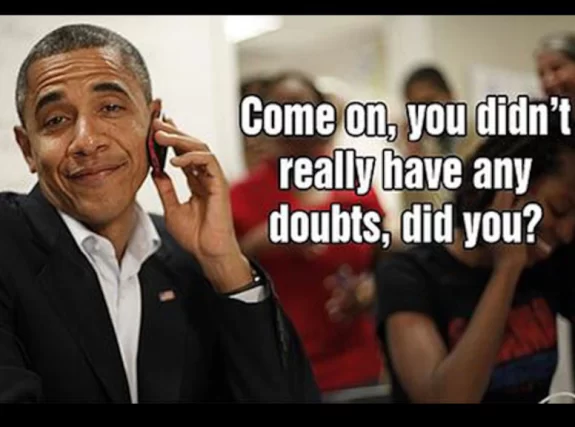Why Obama beat the elephant … he WAS the elephant

“If you give up on the idea that your voice can make a difference, then other voices will fill the void”
Barak Obama
Thanks to a cartoonist, the USA Democratic Party has been associated with the donkey, while the Republicans have been an elephant. But recently, I came across an analogy where human decision making was compared to a rider and an elephant – the rider being the intellect, and the elephant being the emotion. The rider may know where he should be going, but the elephant isn’t always easy to control.
So when someone argued that the conservative parties had the market cornered on emotional politics, it seemed appropriate that the Republicans were most closely linked with the elephant. Conservatives, it was suggested, use concepts such as loyalty (family values and patriotism) and fear (rising crime and weak borders) to win people over, whereas the Left are more inclined towards reason and argument.
It’s more complicated than that, of course, but one only has to look at the recent Australian election to see how this has played out. Budget emergency and border crisis were the buttons that the Coalition kept pushing over and over again. Labor, for the most part, stood on their record and used reasoned argument to suggest that this wasn’t true.
It’s probably worth remembering that one of the biggest boosts Gillard gave Labor was her “misogyny speech”. While the commentators reasoned that she shouldn’t be defending Slipper, the public responded well to her anger.
The problem that Abbott has now, in Government, is by taking away the reasons for the emotions – by telling us that the debt crisis isn’t really that urgent and shutting down the information on boat arrivals – he is encouraging people to think. And when they think, one of the thoughts is: Why did we vote for this clown?
In the United States, the Republicans gained great traction after September 11th attacks. Bush was able to use patriotism to rally people behind him. And by the 2004 election, while some people still questioned the decision to invade Iraq, there was a large portion of the US who felt that not voting for the President in times of war was, well, down-right un-American!
By 2008, of course, the Iraq/Afghanistan conflicts no longer had the same emotional appeal. People were looking for a way out.
Barak Obama was different. Yes, he was black. But he possessed that charisma that made him sound inspiring. It’s sometimes hard to put your finger on why the same words will sound inspiring from one speaker, but like tired cliches from another. Something to do with the intonation; something to do with the timing. But whatever it was, Obama had it. He was able to excite the emotions.
Unlike the 2000 election where George W. Bush was challenged by the intellectual Al Gore, Obama was up against John McCain. Compare the emotional resonance of “Change we can believe in” with “Country First”!
And, at least for some, the opportunity to elect the first black President was exciting.
Then, even though some of excitement had worn off by 2012, Obama was up against a candidate whose motto was “Believe in America”. And while Obama’s “Forward” wasn’t much better it at least gave a direction rather than an ambiguous order. Obama won again because he was still able to engage the elephant as well as the rider, while his opponent had difficulty in making people care enough to actually want change.
Generally, the only successful Democrat candidates for president over the past fifty years have all been able to engage the emotions: Kennedy, Clinton and Obama. Carter, of course, had the advantage that he was standing after the shock of Watergate.
Does Labor need a similarly charismatic leader, or will Abbott manage to have people emotionally charged anyway? After all, fear of losing one’s job may be a pretty potent one by 2016. But loyalty and fear aren’t the only emotions. People can become worked up over things like fairness and honesty too.
Like what we do at The AIMN?
You’ll like it even more knowing that your donation will help us to keep up the good fight.
Chuck in a few bucks and see just how far it goes!
Your contribution to help with the running costs of this site will be gratefully accepted.
You can donate through PayPal or credit card via the button below, or donate via bank transfer: BSB: 062500; A/c no: 10495969









